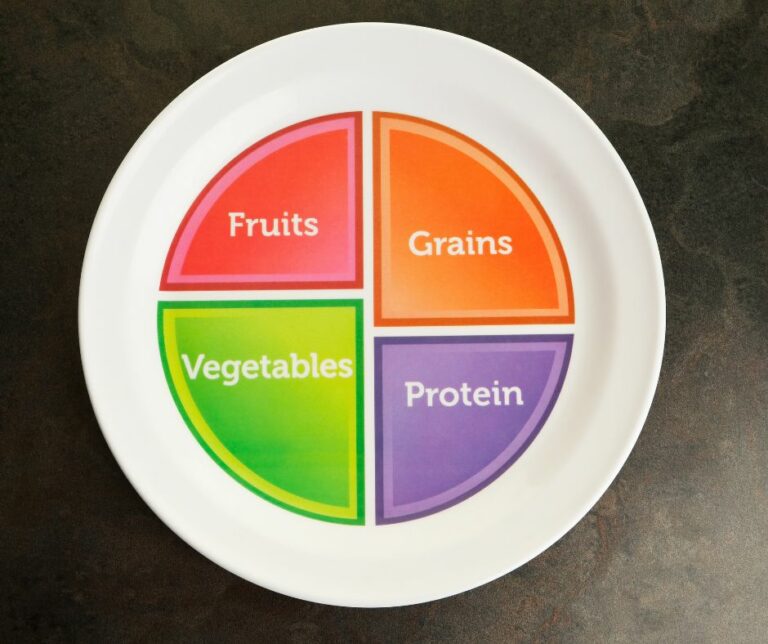I’m going to kick things off by demystifying vitamins and minerals. These are more than just words you see on the labels of health supplements; they are crucial for your body’s day-to-day functioning.
Vitamins are organic compounds that your body needs in small quantities to operate effectively. On the flip side, minerals are inorganic elements that come from soil and water and are absorbed by plants or eaten by animals.
Your body requires both to grow, develop and perform its many functions. From forming bones and teeth to managing your metabolism, every little action counts on the presence of these nutrients. Now, let’s get specific. When it comes to minerals, there are two main groups: macrominerals and trace minerals. Macrominerals, like calcium and magnesium, are needed in larger amounts, while trace minerals, such as iron and zinc, are required in much smaller amounts but are no less significant.
Then, you have the vitamins, each with a unique role. Take vitamin C, famous for its immune-boosting prowess, or vitamin D, the so-called ‘sunshine vitamin,’ that is vital for bone health and disease prevention. That’s just scratching the surface. Each vitamin, from A to K, has a job that contributes to a well-oiled physiological machine.
I’ve outlined just the foothills of the nutritional landscape; ahead lies a more detailed exploration of the interconnectedness of these nutrients. In the next section, we’re going to delve into the relationships between various vitamins and minerals – showing how they synergize for your health. Because it’s not just about individual vitamins and minerals; it’s also about how they work together.
How do Vitamins and Minerals Work Together?
Now, when it comes to vitamins and minerals, it’s not just about what you consume, but also how they interact within your body. Imagine a team where each player has a unique role but also relies on teammates to score a goal. That’s how micronutrients function; they have interdependent relationships that can significantly influence their absorption and effectiveness.
A balance of these nutrients is paramount. Take iron, for example. To maximize absorption, you need sufficient vitamin C; without it, even high iron intake might not be as effective. This is just one of the many examples where vitamins and minerals form a buddy system to promote better health.
Then there’s calcium and vitamin D � a classic duo. Vitamin D is crucial for helping your body absorb calcium, which is vital for maintaining strong bones. If you’re low on vitamin D, it doesn’t matter how much calcium you take in; your body might not fully utilize it. And it’s not just about bone health � this power couple influences muscle function and even immune response.
You’ll also want to keep an eye on vitamin B12 and folate. They’re like two peas in a pod when it comes to creating red blood cells and synthesizing DNA. A deficiency in one can often mask a deficiency in the other, leading to potential misdiagnosis or incomplete treatment.
Pay attention to what you feed your body, as the symphony of micronutrients requires balance and harmony. Overemphasizing one nutrient over others can throw off that harmony, possibly leading to health issues. Next, we’re going to explore the real-world consequences of lacking these essential nutrients, and how this might manifest in your everyday health.
Identifying and Addressing Deficiencies: The Impact on Health
You might wonder, “Am I getting all the vitamins and minerals my body needs?” and that’s a valid concern. Vitamins and minerals are vital to your body’s function, and not getting enough can lead to deficiencies with a range of symptoms.
Some common deficiencies to look out for include a lack of vitamin D, which can lead to bone density issues; insufficient iron, which might cause anemia; and low levels of vitamin B12, especially in vegans, which can affect nerve function and produce fatigue.
Calcium shortages can compromise bone health, and not enough potassium can cause muscle cramps and cardiovascular problems.
The long-term consequences of micronutrient deficiencies aren’t just uncomfortable, they can be severe. A persistent lack of essential vitamins and minerals can result in chronic health conditions, like osteoporosis or heart disease. That’s why it’s important to identify these deficiencies early.
Detection usually involves blood tests and medical evaluations, but even then, the symptoms often guide the investigational path. If you suspect you’re deficient, seeing a healthcare provider is crucial.
Correcting a deficiency typically involves dietary adjustments—like adding more leafy greens for iron or fatty fish for omega-3s and vitamin D—or possibly, supplementation.
Remember, though, supplements aren’t a one-size-fits-all solution. It’s vital to talk to a professional before starting any new regimen to ensure the right dosage and avoid any potential interactions with medications. Just don’t focus too much on perfection; making incremental improvements to your diet can have a major positive impact on your overall nutrient intake.
What is the function of Vitamins and Minerals?
Vitamins and minerals are both essential nutrients that our bodies need to function properly, but they differ in several key ways:
1. Chemical Nature
- Vitamins: Organic compounds, meaning they contain carbon. They are complex molecules that can be broken down by heat, air, or acid.
- Minerals: Inorganic elements, meaning they do not contain carbon. They are simpler in structure and are not affected by heat, air, or acid.
2. Sources
- Vitamins: Primarily found in plant and animal-based foods. Examples include fruits, vegetables, meat, dairy, and grains.
- Minerals: Found in soil and water, and absorbed by plants or consumed by animals. They can also be obtained directly from food or supplements.
3. Function
- Vitamins: Generally act as coenzymes and antioxidants. They are crucial for energy production, immune function, blood clotting, and other metabolic processes.
- Minerals: Play a structural role in the body (e.g., calcium in bones), are involved in fluid balance (e.g., sodium and potassium), and are components of enzymes and hormones.
4. Types
- Vitamins: Divided into two categories:
- Water-soluble vitamins: Vitamin C and B-complex vitamins (such as B6, B12, niacin, riboflavin, and folate). These need to be consumed more regularly because they are not stored in the body.
- Fat-soluble vitamins: Vitamins A, D, E, and K. These are stored in the body’s fatty tissues and liver and can be consumed less frequently.
- Minerals: Divided into two categories:
- Macrominerals: Required in larger amounts. Examples include calcium, phosphorus, magnesium, sodium, potassium, chloride, and sulfur.
- Trace minerals: Required in smaller amounts. Examples include iron, manganese, copper, iodine, zinc, cobalt, fluoride, and selenium.
5. Deficiency Symptoms
- Vitamins: Deficiencies can lead to specific diseases (e.g., scurvy from lack of vitamin C, rickets from lack of vitamin D, and beriberi from lack of vitamin B1).
- Minerals: Deficiencies can also lead to specific conditions (e.g., anemia from lack of iron, osteoporosis from lack of calcium, and goiter from lack of iodine).
6. Absorption and Storage
- Vitamins: Water-soluble vitamins are absorbed directly into the bloodstream and excreted through urine, while fat-soluble vitamins are absorbed with dietary fat and stored in the liver and adipose tissue.
- Minerals: Absorbed in various ways depending on the mineral, and can be stored in different parts of the body, such as bones, liver, and muscles.
Summary
- Vitamins are organic compounds that support a wide range of bodily functions and are categorized based on their solubility.
- Minerals are inorganic elements that support structural and functional roles in the body and are categorized based on the required amount.
Both vitamins and minerals are vital for maintaining health and need to be consumed through a balanced diet or supplements as necessary.
Integrating Vitamins and Minerals into Your Daily Routine
Guidelines suggest that eating a varied diet, rich in fruits, vegetables, whole grains, and dairy, is the key to getting all the vitamins and minerals your body needs. Each food group contributes different micronutrients, which means diversity on your plate is more than just aesthetically pleasing; it’s crucial for your health.
There will be instances where supplements may seem like a quick fix, especially if you’re falling short on certain nutrients. If this is the case, it’s best to chat with a healthcare provider before starting any new supplement regimen. They’re going to look at your individual needs, assess potential interactions with medications, and help you establish the right balance.
Adapting your micronutrient intake as you age or as your lifestyle changes is important. Pregnancy, athletic training, aging, and certain health conditions can all affect nutritional needs. Tailoring your approach during these times can help you maintain optimal health.
Finally, remember that balance is key. Overloading vitamins and minerals can be just as harmful as a deficiency. Listen to your body and choose something that resonates with you. A mindful, informed strategy will ensure that vitamins and minerals serve their purpose—keeping you healthy, active, and ready to take on whatever life throws at you.
Also See:


